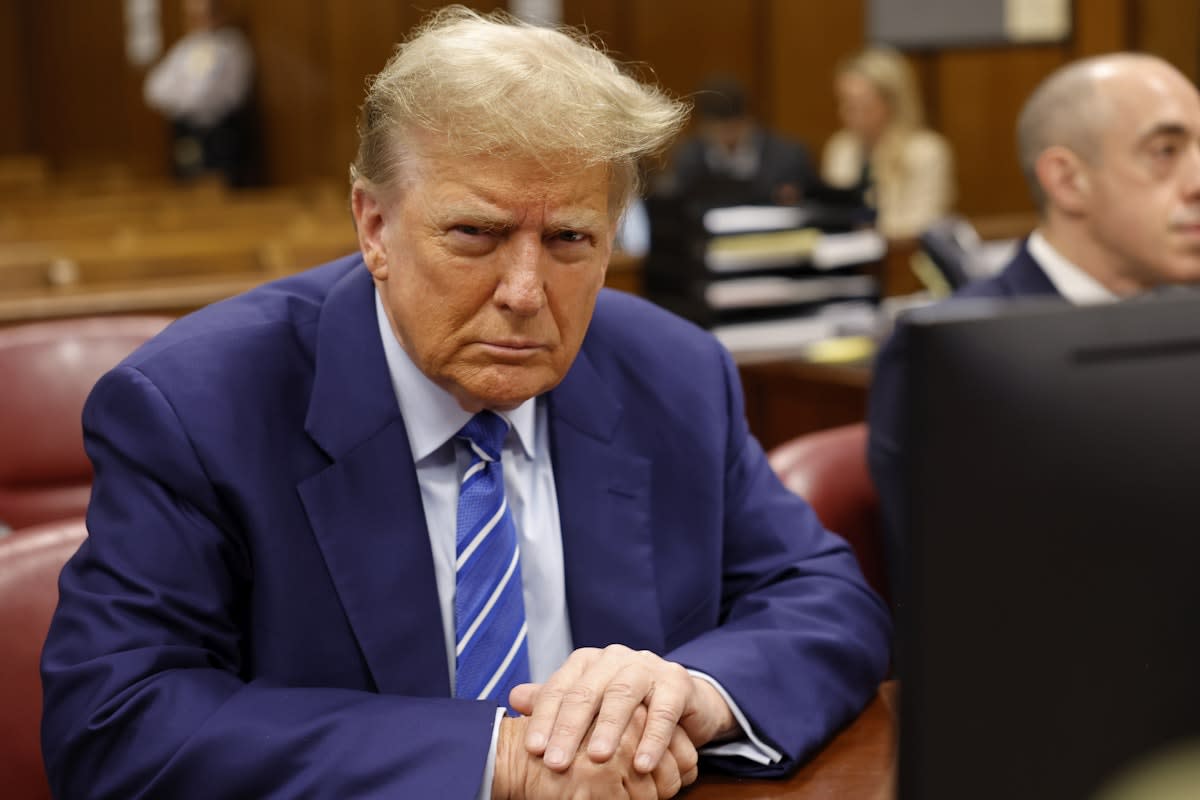How Merrick Garland Can Outsmart Judge Cannon and Put Trump on Trial

- Oops!Something went wrong.Please try again later.
- Oops!Something went wrong.Please try again later.
- Oops!Something went wrong.Please try again later.
When District Judge Aileen Cannon dismissed the Mar-a-Lago classified documents case against Donald Trump earlier this week, she closed one legal door for the prosecution (pending appeal, anyway). But in doing so, the Trump-picked judge opened a new door that would allow much of the case to be tried before the election: The Justice Department and special counsel Jack Smith could indict the former president in the District of Columbia instead, on the obstruction of justice charges alone.
Before Trump was indicted in Florida, there was a debate on whether he could be charged for all of the alleged crimes in the nation’s capital in light of the Sixth Amendment’s requirement that a defendant must be tried in “the State and district wherein the crime shall have been committed.” Some argued that the wrongful retention of classified documents began in Washington—even though those documents ended up at Trump’s club in Palm Beach, including in a bathroom—but that was a dangerous stretch. In addition, that logic would not extend to the Trump employees who hid documents only in Florida.
But there has always been one set of crimes for which D.C. is unquestionably the proper venue for trial: his willful refusal to return hundreds of presidential records, many of which were marked classified, and his lies and other cover-ups. The subpoena demanding he turn over these documents was issued by a District of Columbia grand jury, and Trump’s refusal to honor that demand more than suffices to place his crimes in the District.
The Justice Department would have been subject to severe criticism if it had indicted Trump in D.C. in addition to Florida—thereby double-charging him. That is no longer a problem in light of Cannon’s dismissal order on Monday. But the same venue problem exists for the 34 charges for unlawful retention of classified documents, and so a new indictment should include only those charges relating to the refusal to comply with the D.C. grand jury subpoena: specifically, six related counts of obstruction of justice, concealing records, and making false statements about the subpoenaed documents. Trump’s employees could be named as co-conspirators but could not be tried in D.C.
There is another major advantage for the government in omitting the charges for unlawful retention of classified documents. The case has instantly become much simpler because the prosecutors will no longer have to prove that the documents were properly classified or even contained defense information. The grand jury subpoena had to be honored, even if the documents turned out to be Trump’s personal papers, and the unlawful cover-up does not require the prosecution to show that there were any classified records being withheld. Of course, FBI agents will be permitted to testify that they recovered boxes marked “Secret,” and the jury will be instructed that the labels do not prove that the boxes contained classified information, but the labels will nonetheless provide strong evidence of a motive for the cover-up.
Limiting the indictment to the obstruction of justice charges will also shorten the trial considerably and will eliminate the need for Trump’s lawyer to examine the alleged classified documents before trial. Because the obstruction took place after Trump left office, there is no possibility of an immunity claim. Indeed, the much-shortened case could realistically be tried well before the election, which is quite clearly not what Cannon had in mind.
But what about Jack Smith? After all, Cannon dismissed the case on the spurious grounds that he was unconstitutionally appointed. So, in an excess of caution, Attorney General Merrick Garland should join Smith in signing the new indictment, which would show that he personally approved the indictment, thus making the legitimacy of Smith’s role irrelevant.

